
Ever curious about how we craft our tales? Or which anecdotes didn't quite make it into the final cut? Sign up for our newsletter for an exclusive look behind the scenes.
There’s a black-and-white photo hanging above a white couch in Erin Matson’s office that depicts basketball great — and fellow alum — Michael Jordan staring at a defender with his fierce, competitive eyes. It’s a glare that shoots into the deepest part of your soul and grabs hold of all your insecurities, all while Jordan The Great stands before you, daring you to beat him. Below his stare reads, “PRESSURE IS PRIVILEGE.” It’s one of Matson’s favorite quotes.
“No matter how hard something may seem, no matter what situation you’re in, there’s someone out there who dreams of being in it,” says Matson, the head coach of the University of North Carolina field hockey team. “No matter how heavy things feel and all the pressure around it, be grateful and appreciative of the moments you work so hard for. And make the most out of them.”
Pressure? Please. That’s where Matson thrives. Like Jordan, who made a career of clutch plays in pressure-packed moments, Matson developed a reputation on the field hockey pitch as a scorer with no fear of who’s going to attack the goal — and she has the résumé to prove it. Big game against a rival? There’s Matson with the pep talk. Shootout in overtime? Give it to Matson.
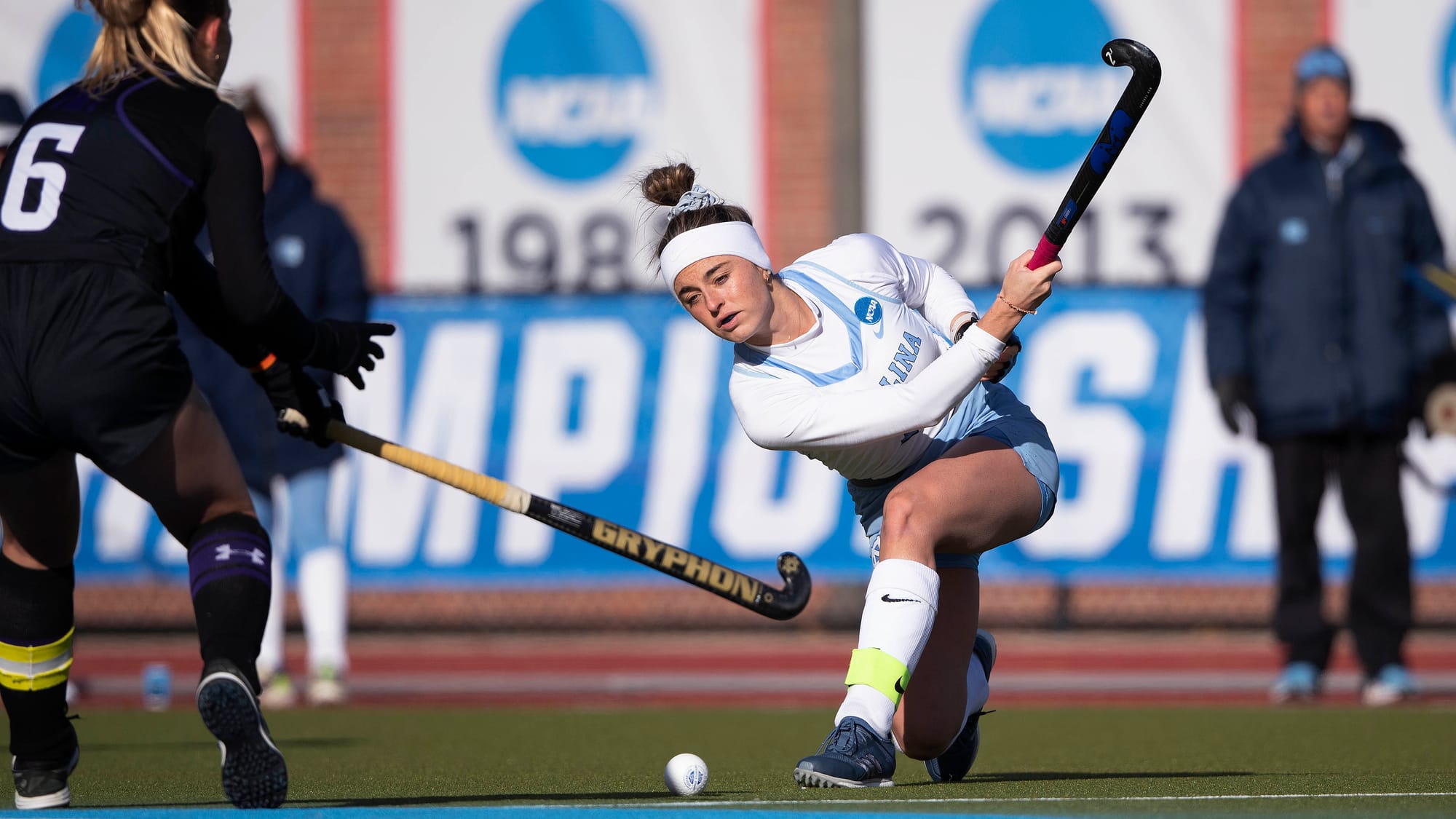
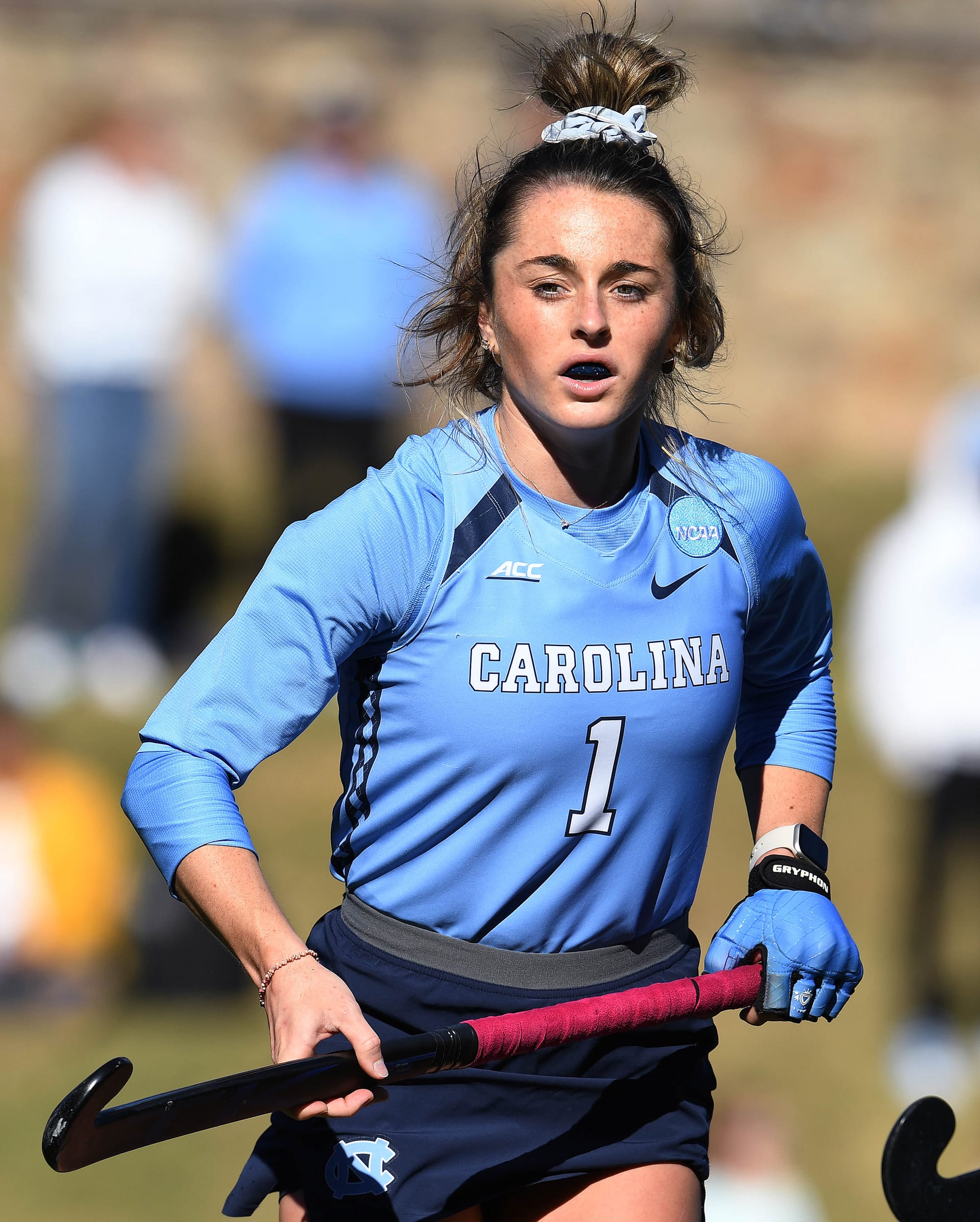
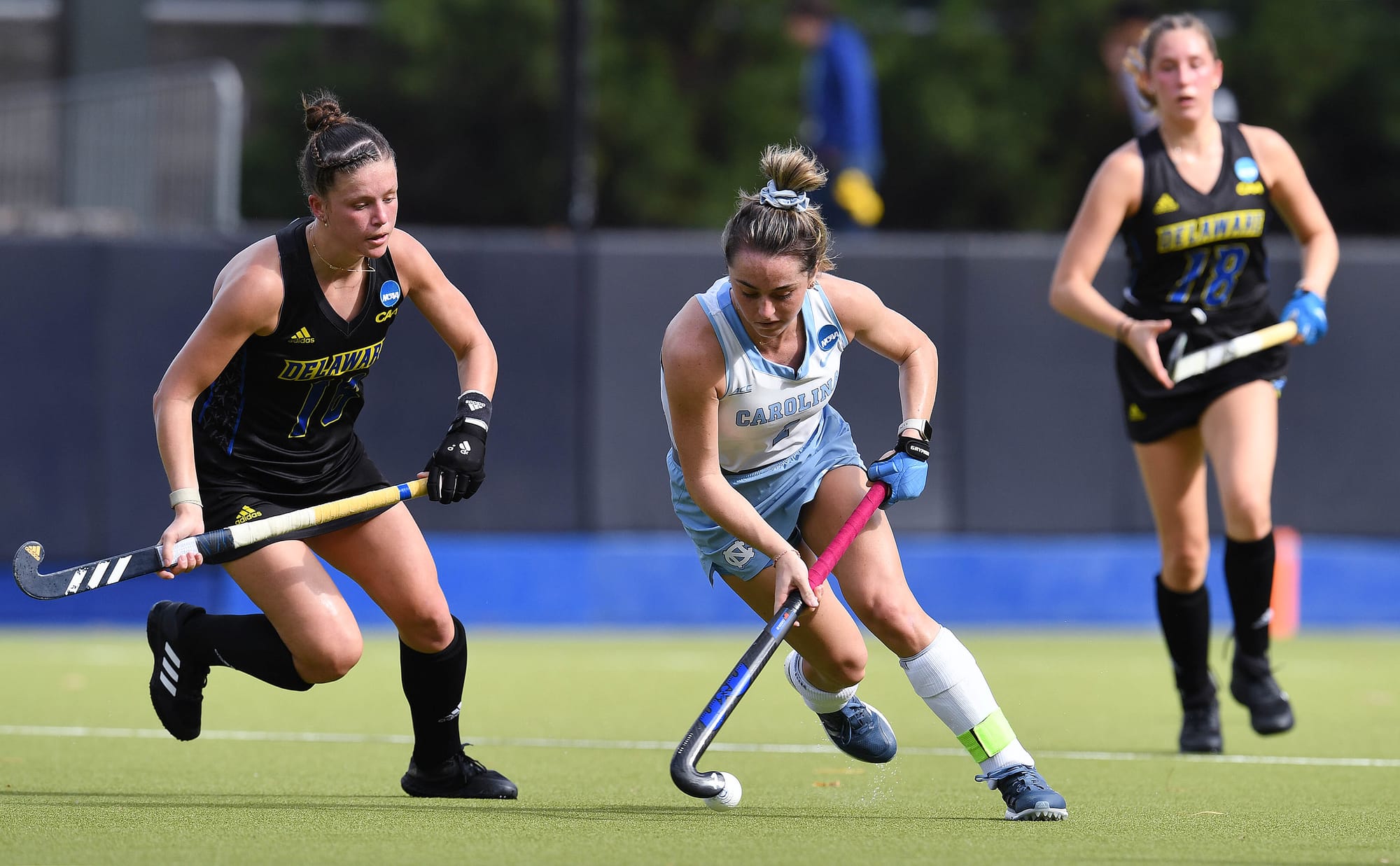
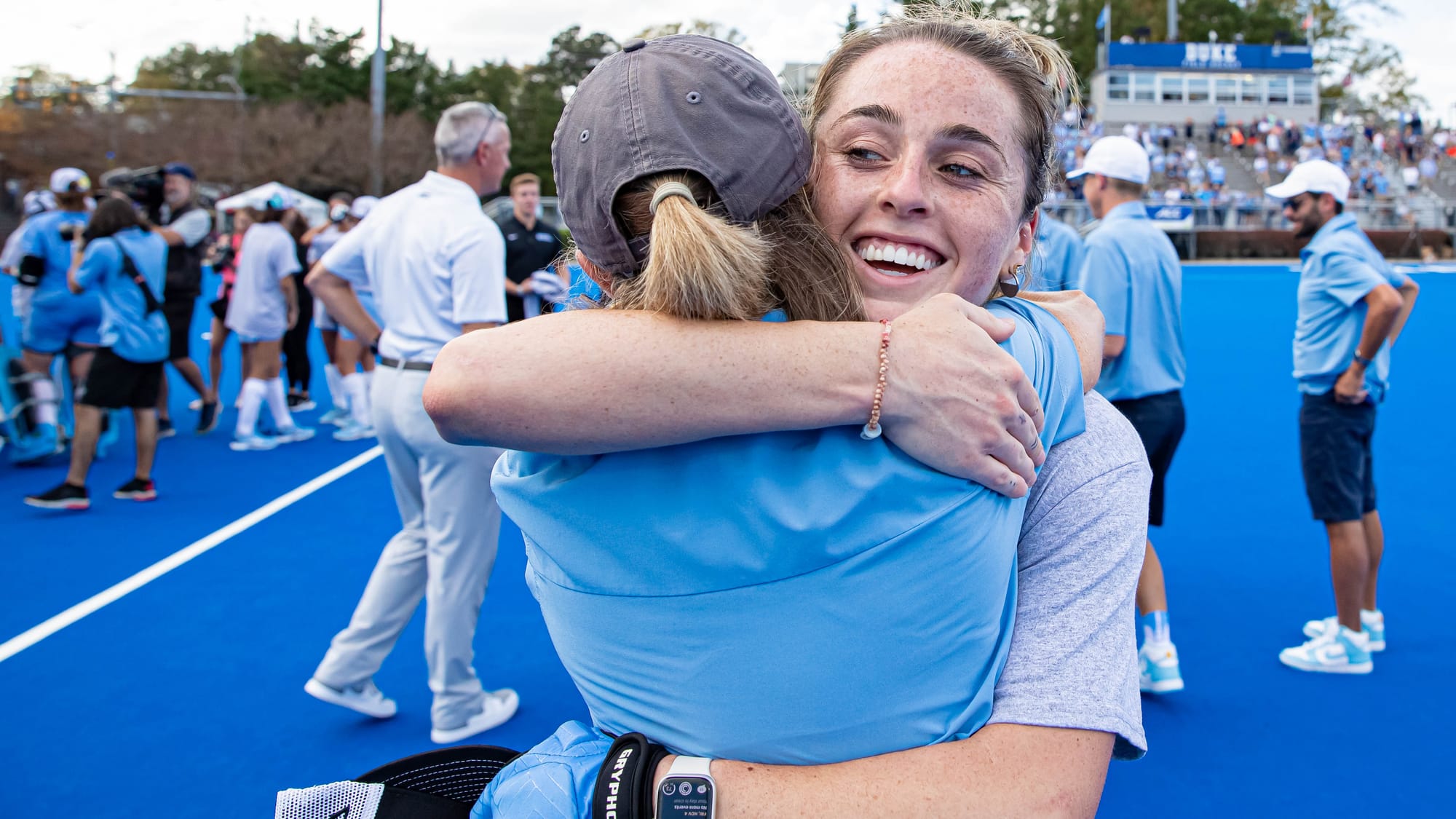
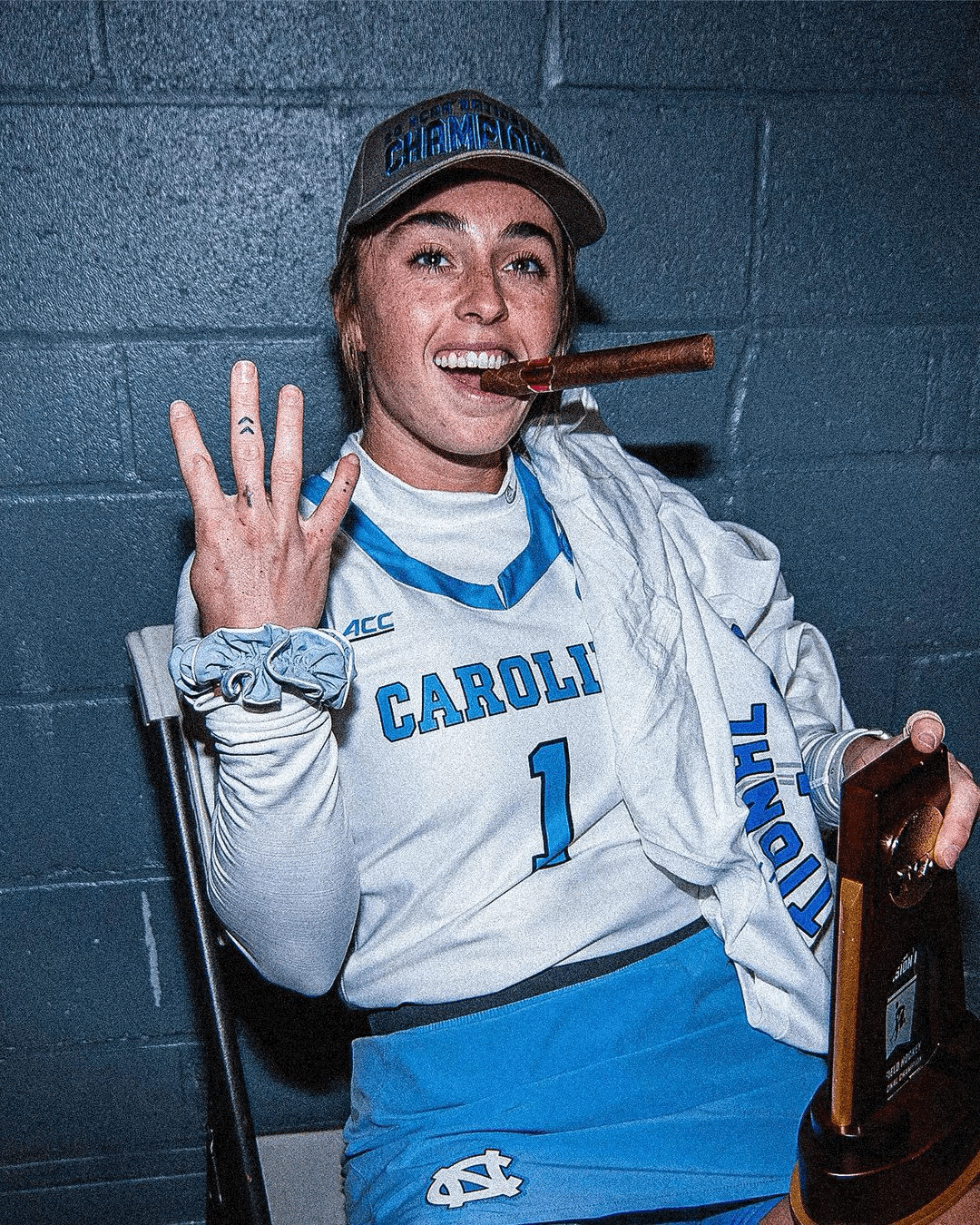
Matson arrived in Chapel Hill as a freshman and immediately began turning heads, both for her athletic prowess and leadership skills. [Courtesy photos]
She’s a five-time collegiate national champion, winning both as a player (four) and a head coach (one). She’s the Atlantic Coast Conference’s all-time leading scorer in goals and points. Three times she’s been named the best female collegiate athlete in field hockey. In her five years of playing in Chapel Hill, she led the Tar Heels to a 99-8 record, including three undefeated seasons. She joined the U.S. Women’s National Team at 17, playing alongside teammates and opponents in their 30s. She scored a hat trick in a bronze medal match against Peru in the 2019 Pan Am Games.
Then, when her UNC coach Karen Shelton retired after 42 years of building the program into a powerhouse, Matson took the reins and led the team to a national title in her first season — in a championship game, no less, that was won in a nail-biting, double-overtime shootout over rival Northwestern.
Pressure? What of it.
“Erin is an outstanding leader who has a deep and thorough knowledge of the game,” says Bubba Cunningham, UNC’s director of athletics. “She knows how to inspire, listen, teach, and win.”
“She’s arguably — and I think it’s inarguably — the best offensive player to ever come through NCAA field hockey,” Shelton says, adding in another interview that Matson is “the Michael Jordan of field hockey.”
And she’s only 23.
From her earliest days, Matson has been older than her years. Why, exactly, is hard to say, but it may have something to do with how quickly she progressed with field hockey as a young girl.
She fell in love with the sport as a six-year-old when her mom took her to a clinic at a park near their Pennsylvania home. It was held on a grass field — which Matson has grown to hate; the grass slows the ball down and divots create all sorts of havoc — but she was hooked. The speed. The technique. The thrill. By nine years old, she joined the best youth field hockey team in the country, the WC Eagles, and was placed on a team of 14-year-old girls who were faster, more physical and smarter on the pitch. The young Matson absorbed it all.
It's no surprise Matson found a love for sports. Her mom played softball and field hockey at Yale. Her dad played baseball at Delaware. And her younger brother pitches for Harvard. Sports, it seems, runs in the family’s DNA.
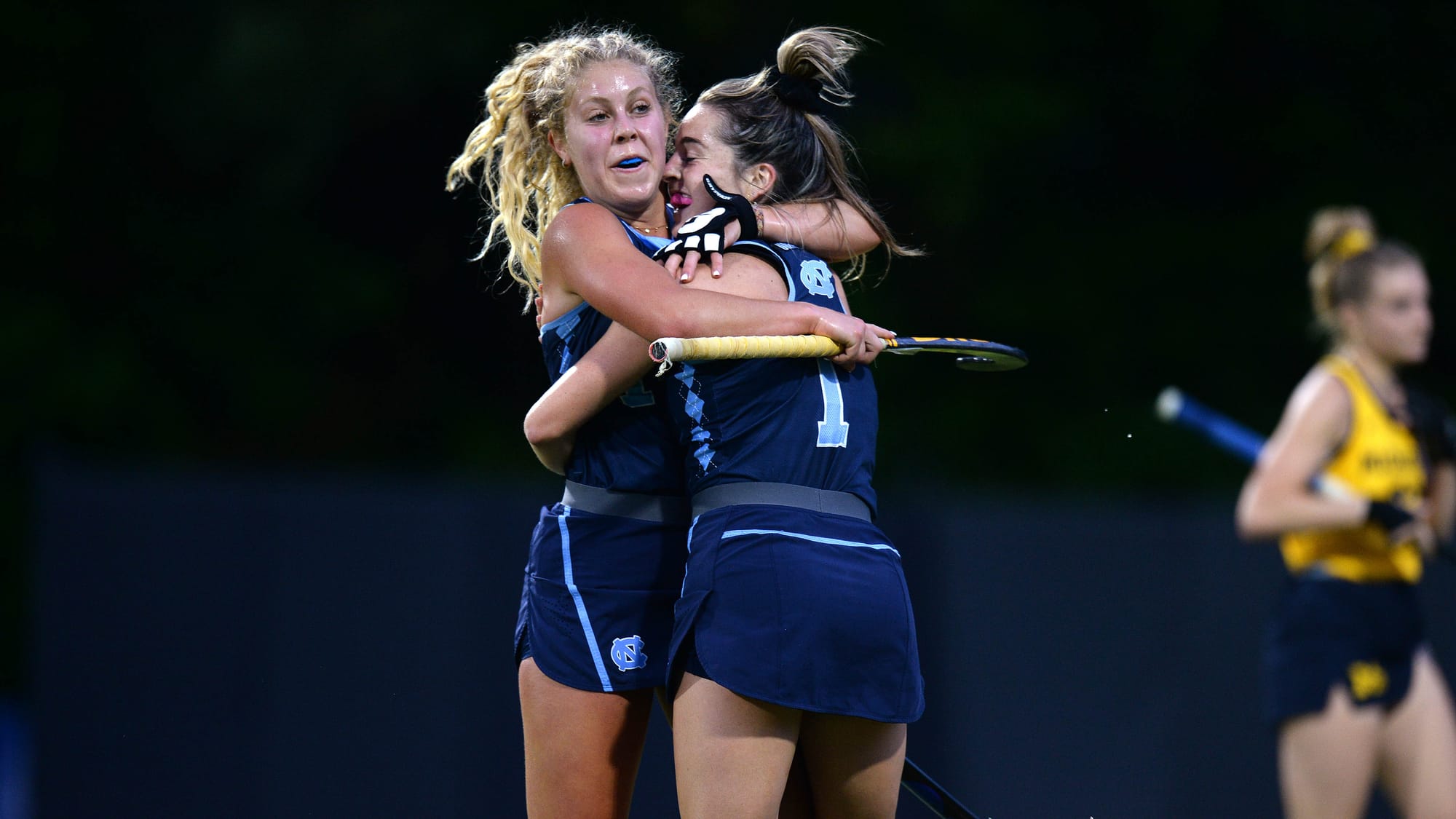
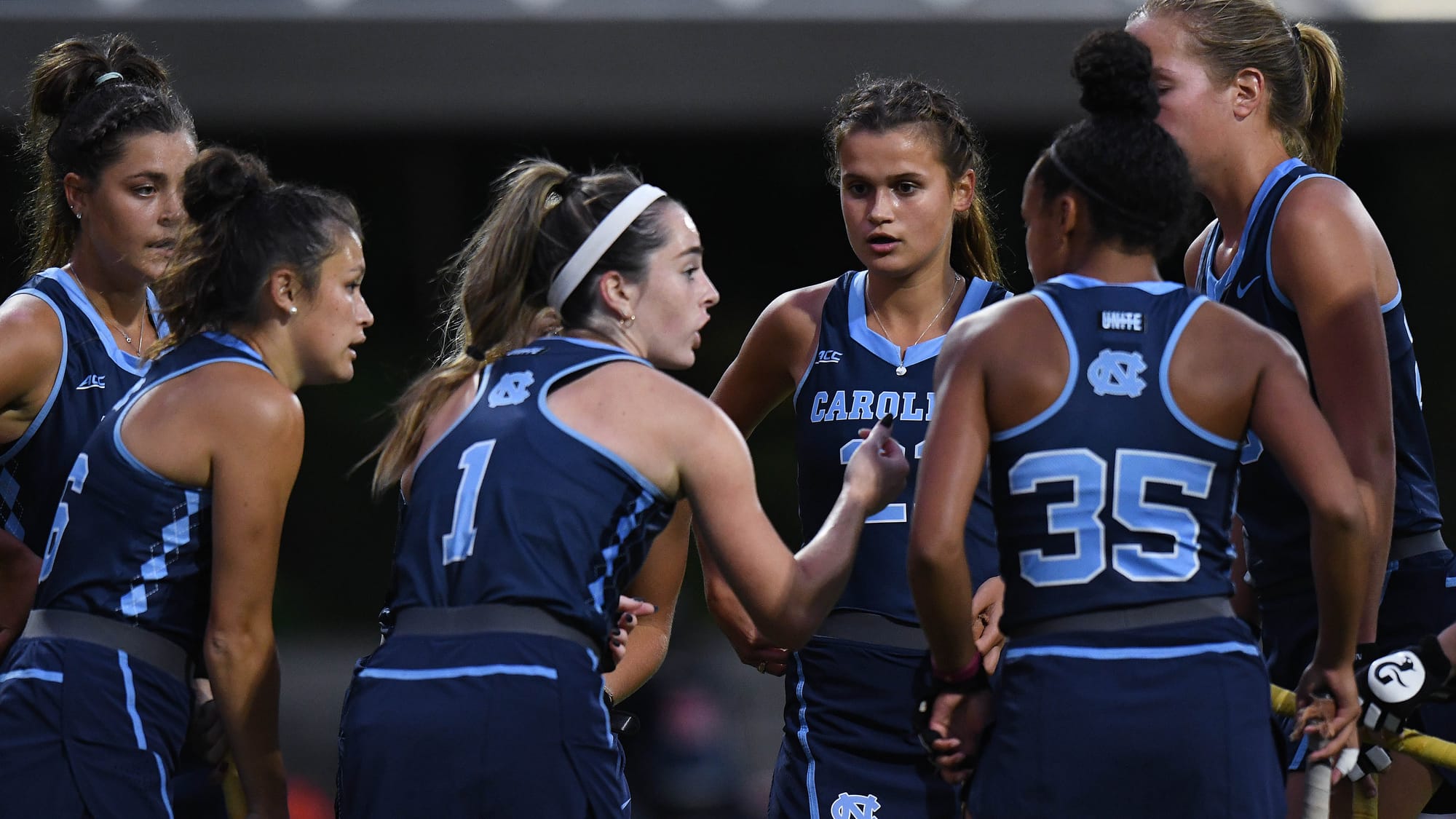
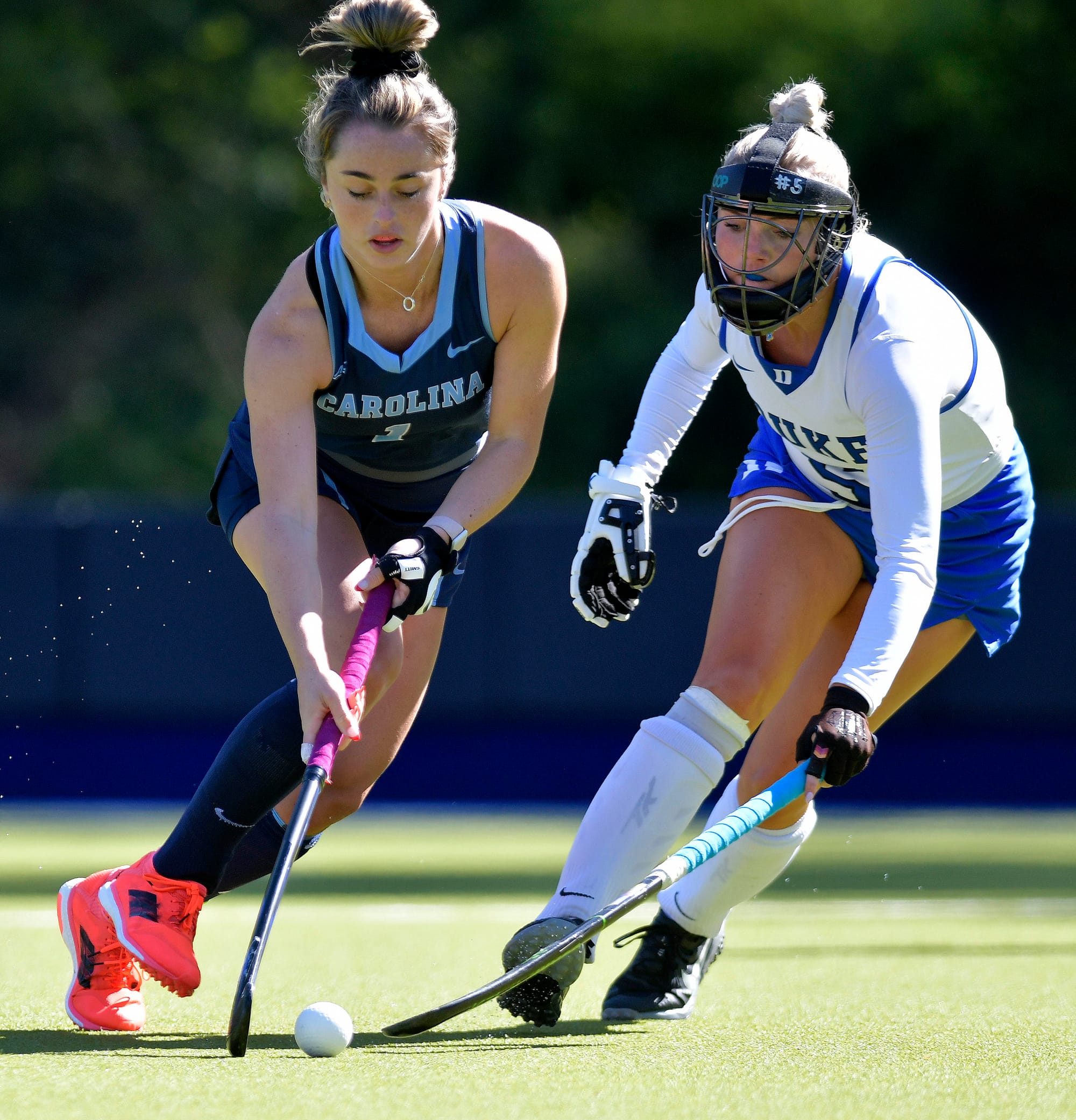
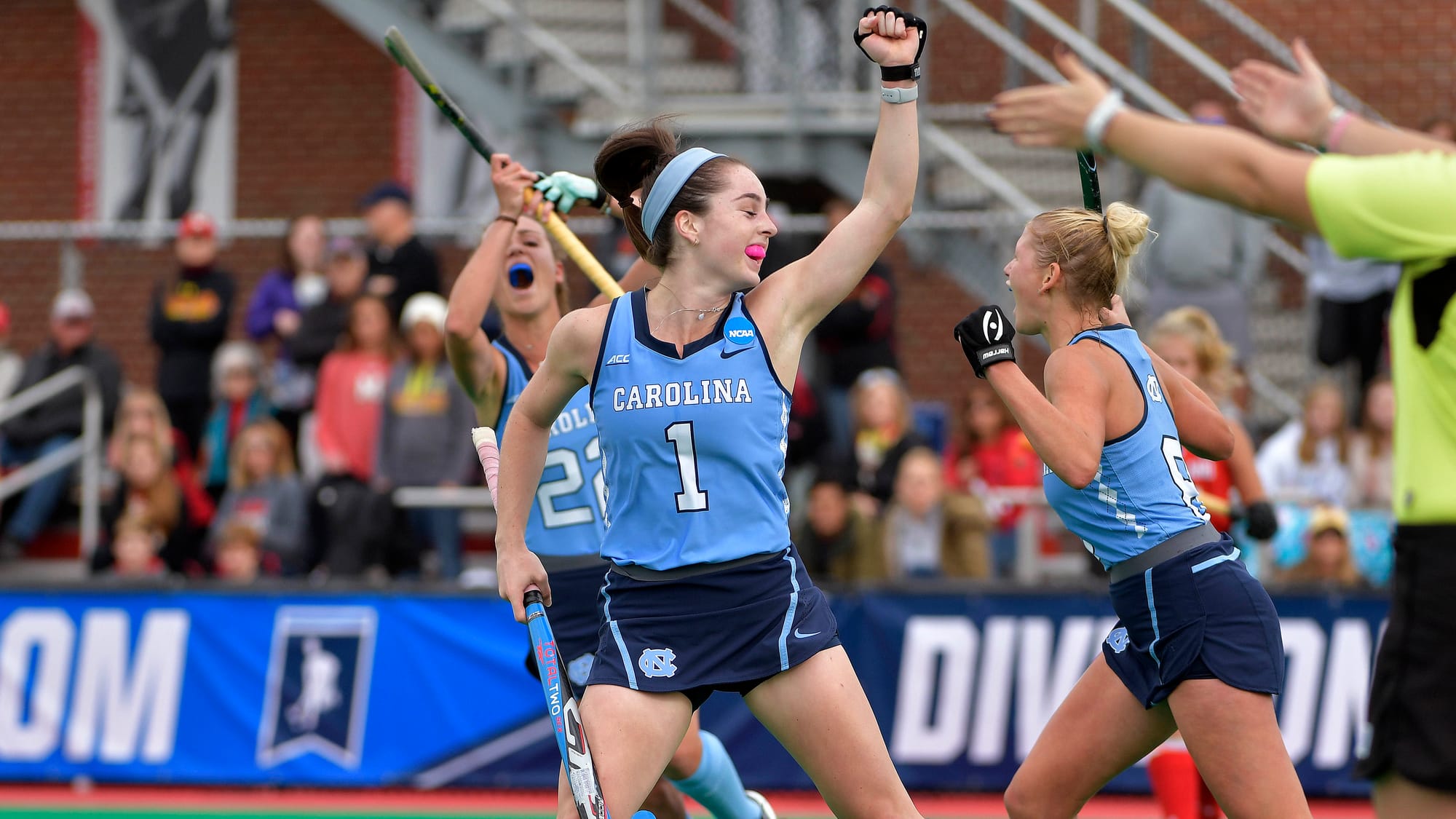
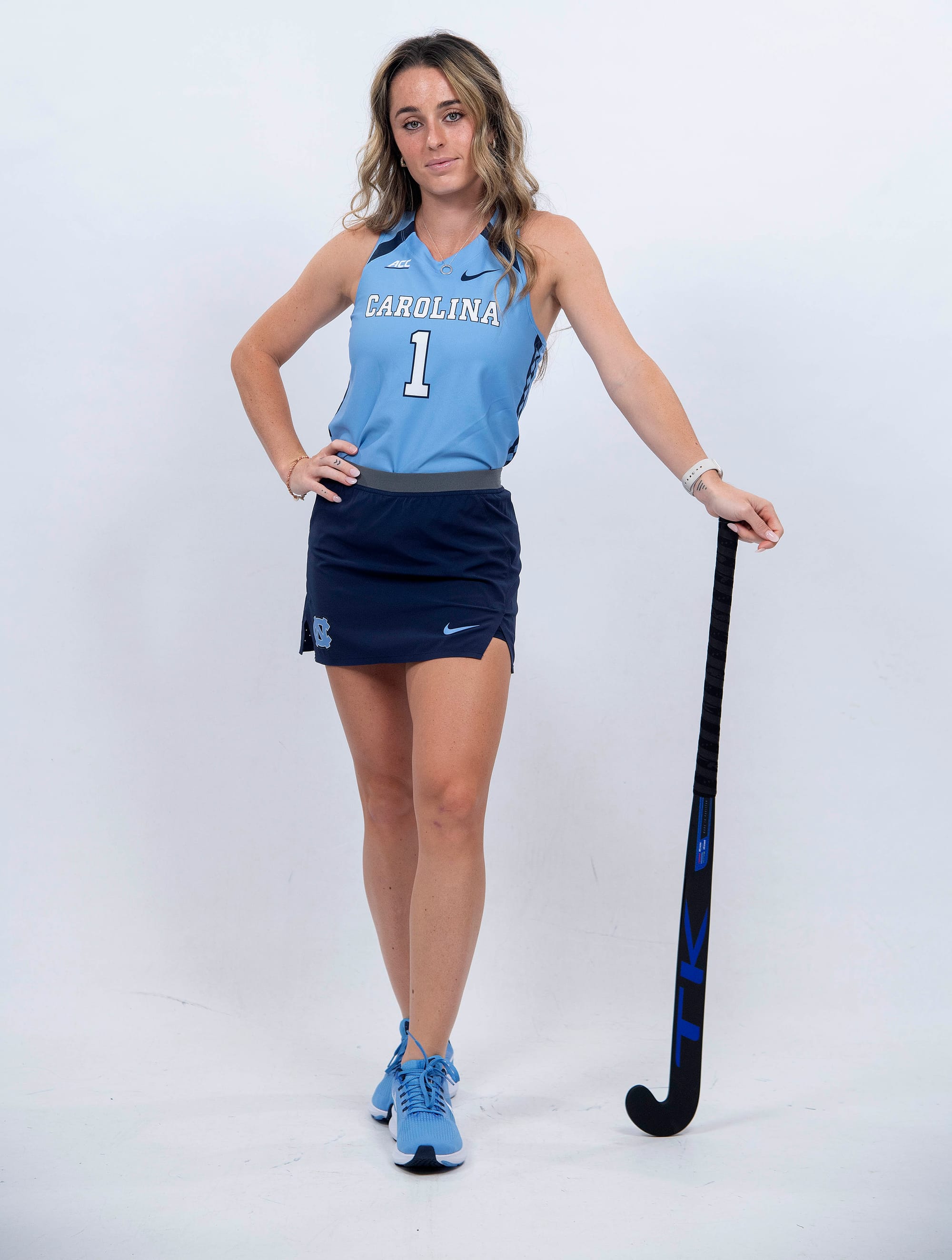
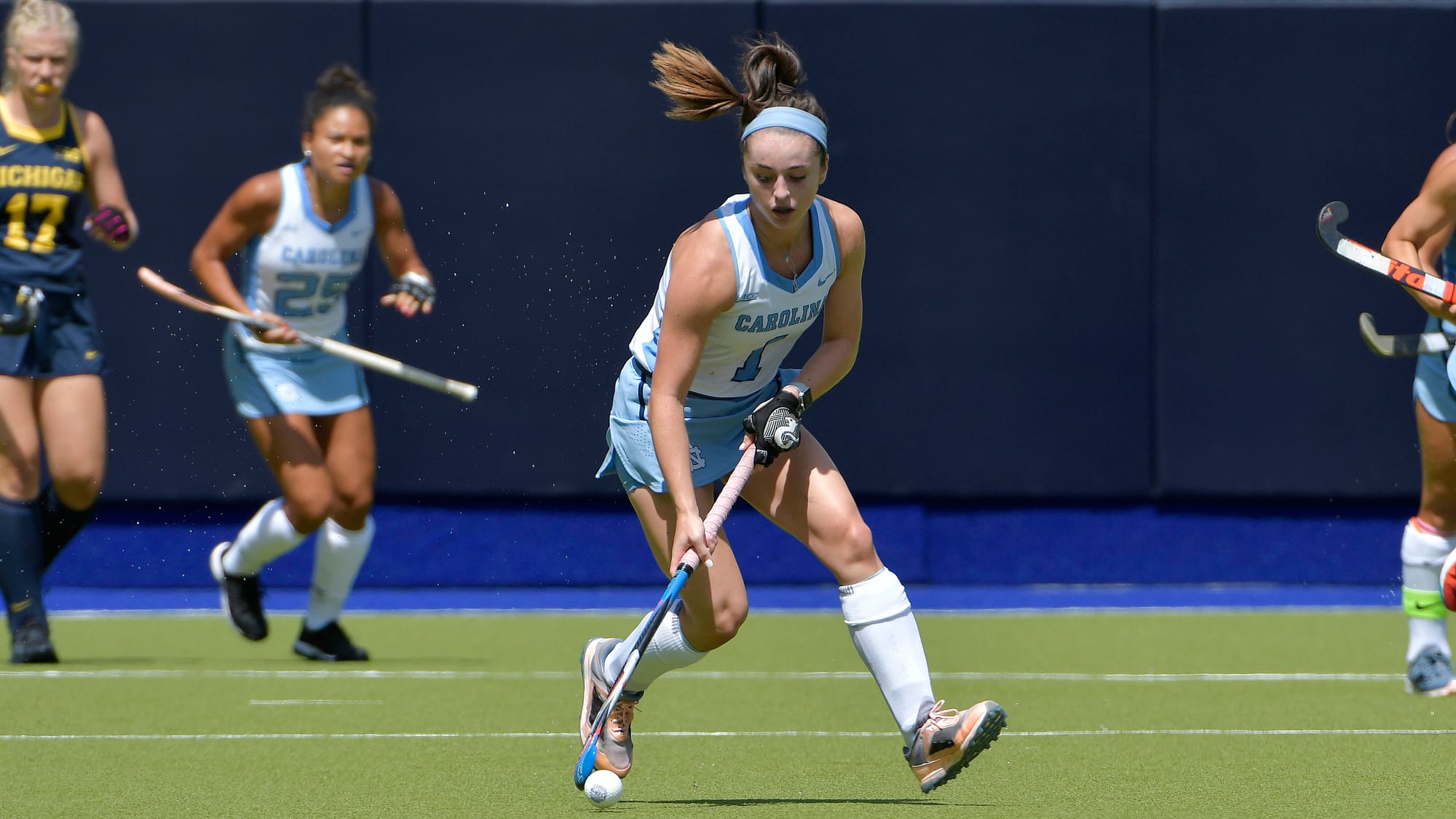
Her dominance on the turf led to comparisons with another Carolina great, one Michael Jordan. [Courtesy photos]
Matson’s drive, her competitiveness, her strong-willed nature — yeah, she gets that from her mom. If you’re going to do something, her mom has long preached, do the best you can, take pride in it, and do it better than anyone else. It’s no wonder that when it comes to preparation, Matson is meticulous. In a video she posted on Twitter years ago, there’s her nine-year-old self practicing pulls in her parent’s basement — a fundamental skill that slides the ball back and forth across your body with your stick. It’s a move that players can make a hundred times a game. In the video, Matson moves the ball quickly, controlling it with her stick that serves like an extension of her arms. Later, in that same video, she’s 19, practicing that same drill while warming up for an Olympic qualifier in India.
“Further reference that you’re never too young OR too old to respect the fundamentals,” she wrote in her Twitter post. “You can never be too good at the basics!”
Shelton first saw Matson during an indoor practice with the WC Eagles. Shelton returned home for Christmas break and went to watch her niece, who played on the same team as Matson. Shelton’s brother told her, “You have got to see this young kid. She’s unbelievable.” The nine-year-old Matson didn’t disappoint.
“Erin just stood out. She was mature and head and shoulders above the other kids. She had a nose for the goal,” Shelton recalls. “She was very, very impressive from a young age.”
Shelton, though, kept her distance. She didn’t want to stalk the young phenom or begin aggressively recruiting. Shelton watched Matson play on the holidays when she returned home, occasionally speaking to Matson’s parents in the stands. Again, not pressuring — just learning, watching Matson’s game develop.
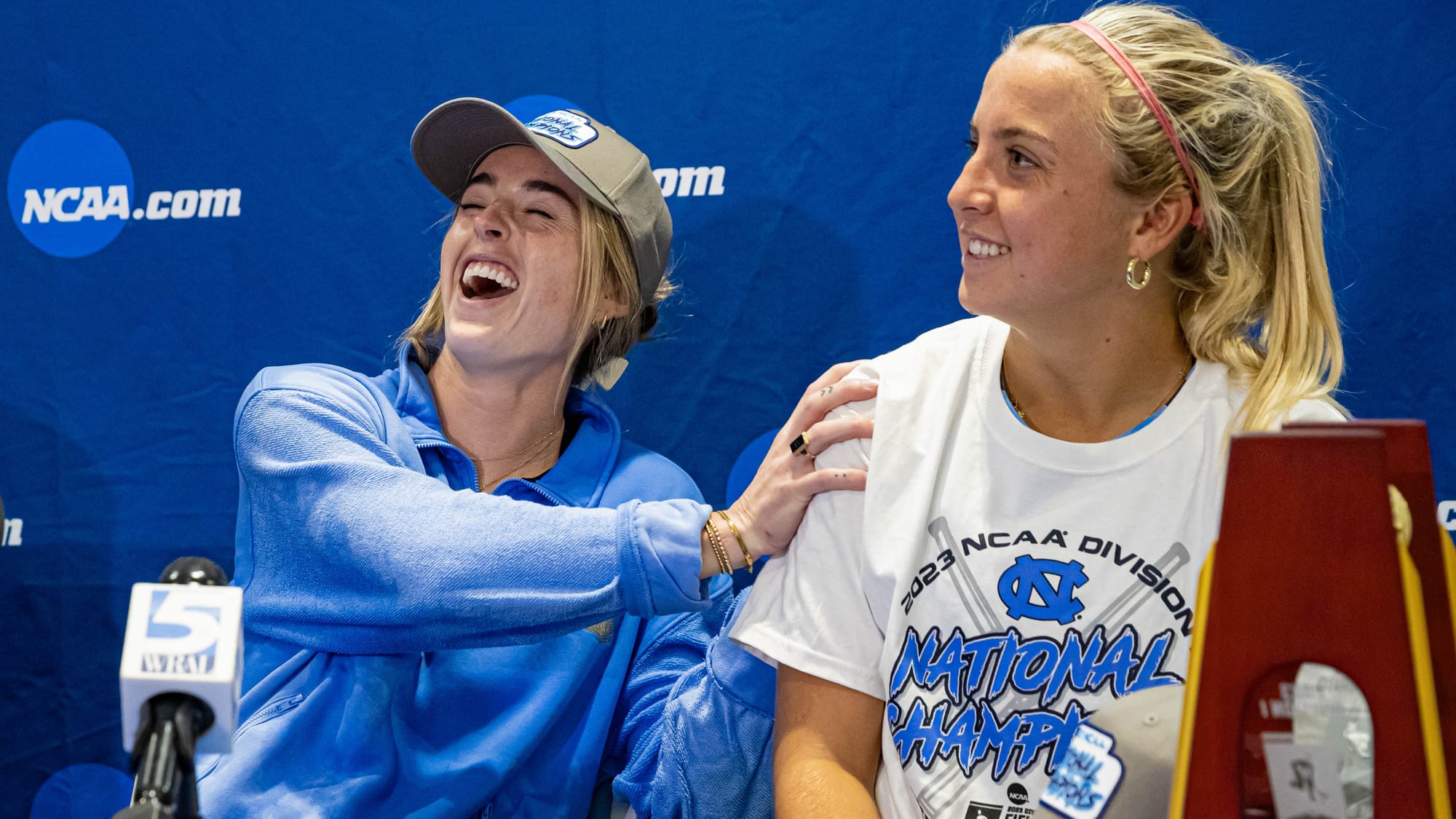
Matson joined the U.S. Women’s indoor team as a 13-year-old and traveled to Argentina. She played two years at Unionville High School, claiming All-American honors as a sophomore, among a slew of other accolades, before devoting herself full-time to the U.S. Women’s National Team. And there she was again, playing above her years: a 17-year-old among 20- and 30-somethings on the pitch. She replaced high school classes with international travel and games. Was it difficult? Sure. Not only did she have to balance practices and ensuring she was eating right and getting enough sleep, but there was also her schoolwork. At all hours, she was emailing professors about lessons and homework and exams. Was it worth it? Oh, no doubt.
“It was either you’re rising to the occasion and you’re embracing the challenge and pushing yourself and preparing, or it was you’re not good enough,” Matson says. “And you’re not good enough meant you’re not going on this international tour and you’re not going to be able to miss class. I was gonna find a way to do it, otherwise I was not going to be happy.”
Through five seasons in Chapel Hill, her 101 games played, 5,197 minutes on the field, her 137 goals and 337 points, there’s one moment that Shelton recalls so vividly about Matson it’s as if it happened yesterday.
Matson was a freshman playing in the ACC championship against Wake Forest. Shelton made a career not promising playing time to anyone — regardless of their seniority — but like so many times before, Matson came in and immediately proved she belonged. She started all 23 games as a freshman and led the team in nearly every offensive category: goals (20), assists (19), points (59).
Against Wake Forest, Matson took a wayward pass near the goal line, spun backward, and flipped the ball past a diving goalie to give UNC a 1-0 lead. The Tar Heels went on to win the game 7-2. As for Matson’s goal, it made SportsCenter’s Top 10 plays of the day.
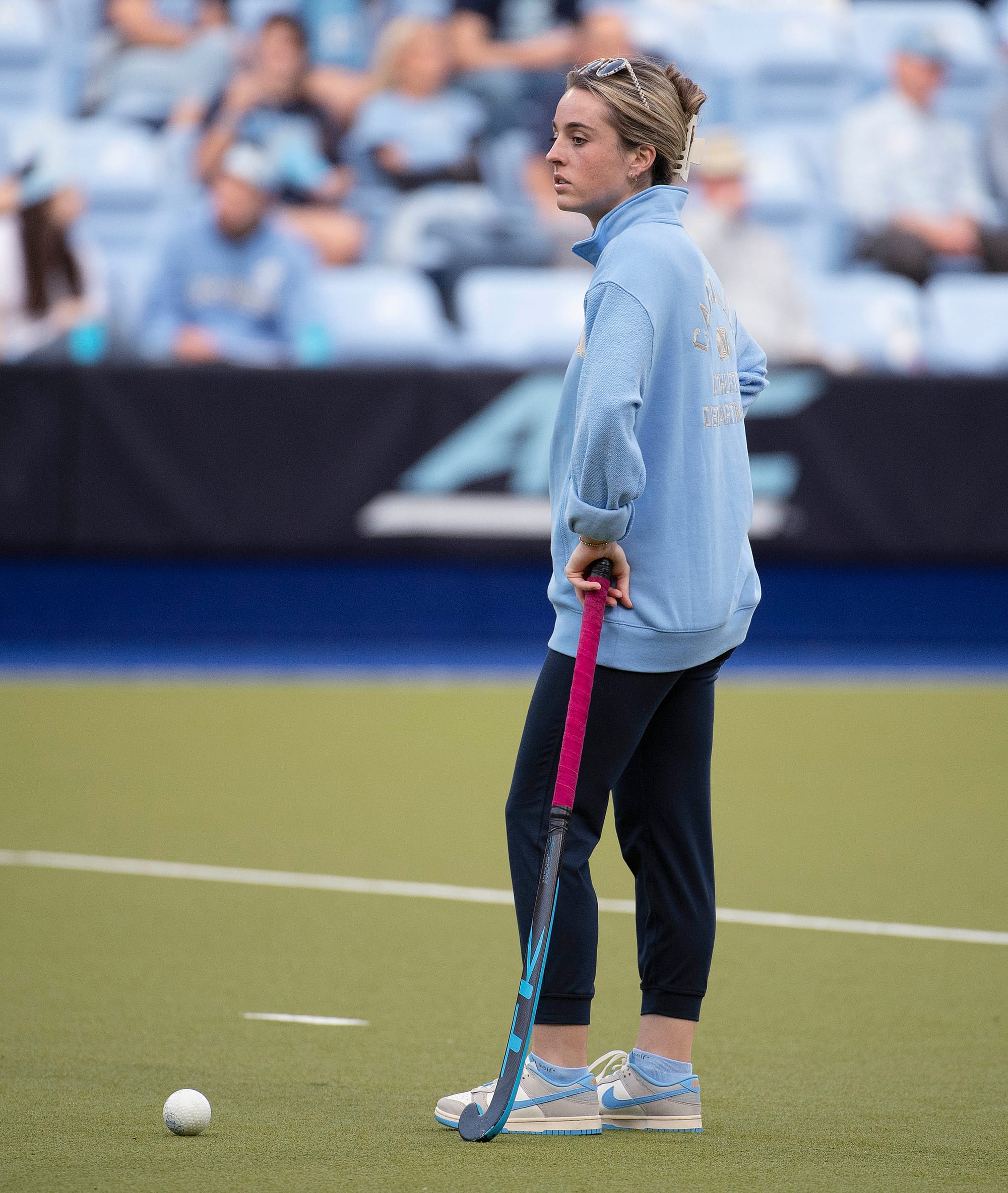
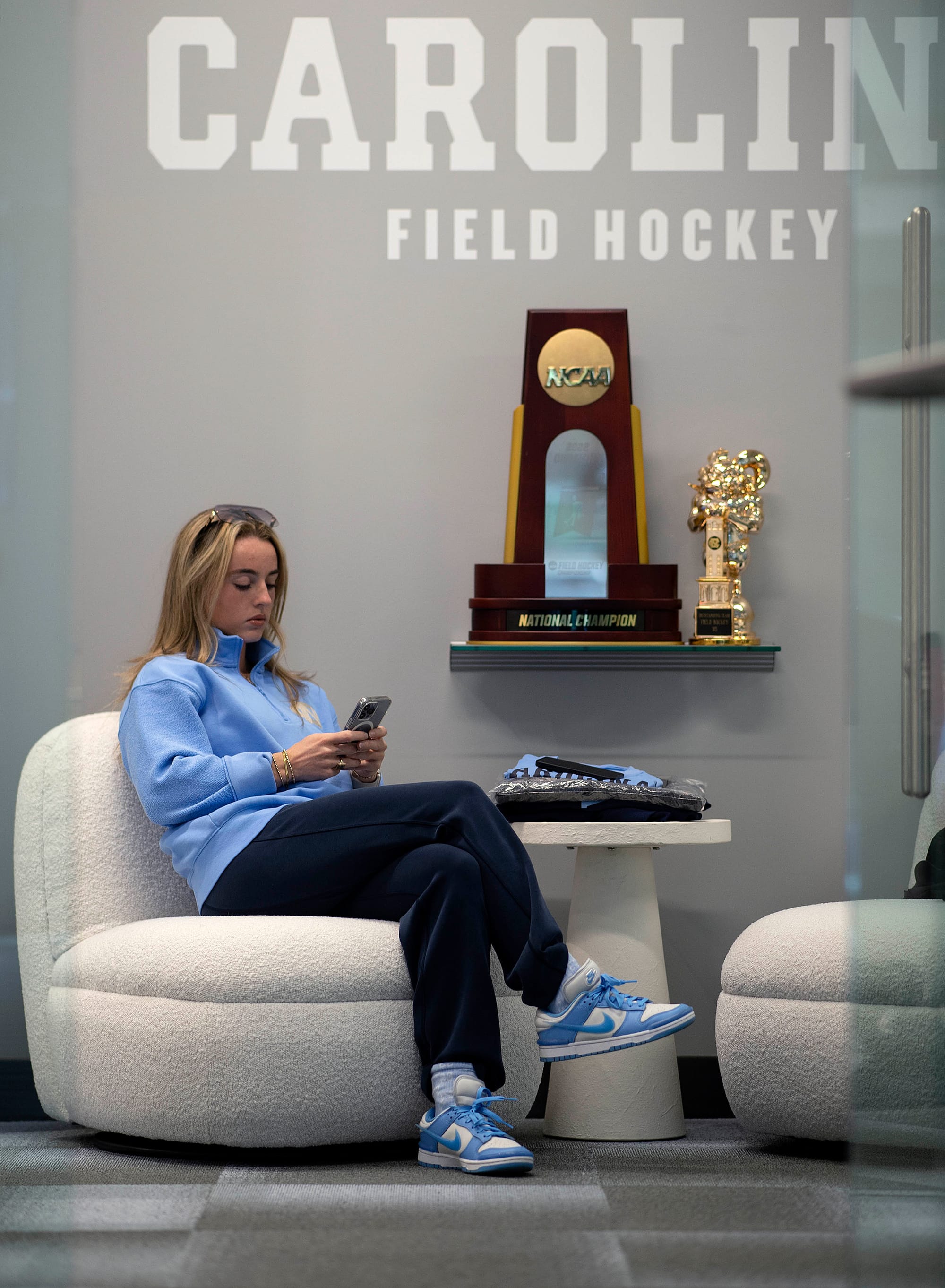
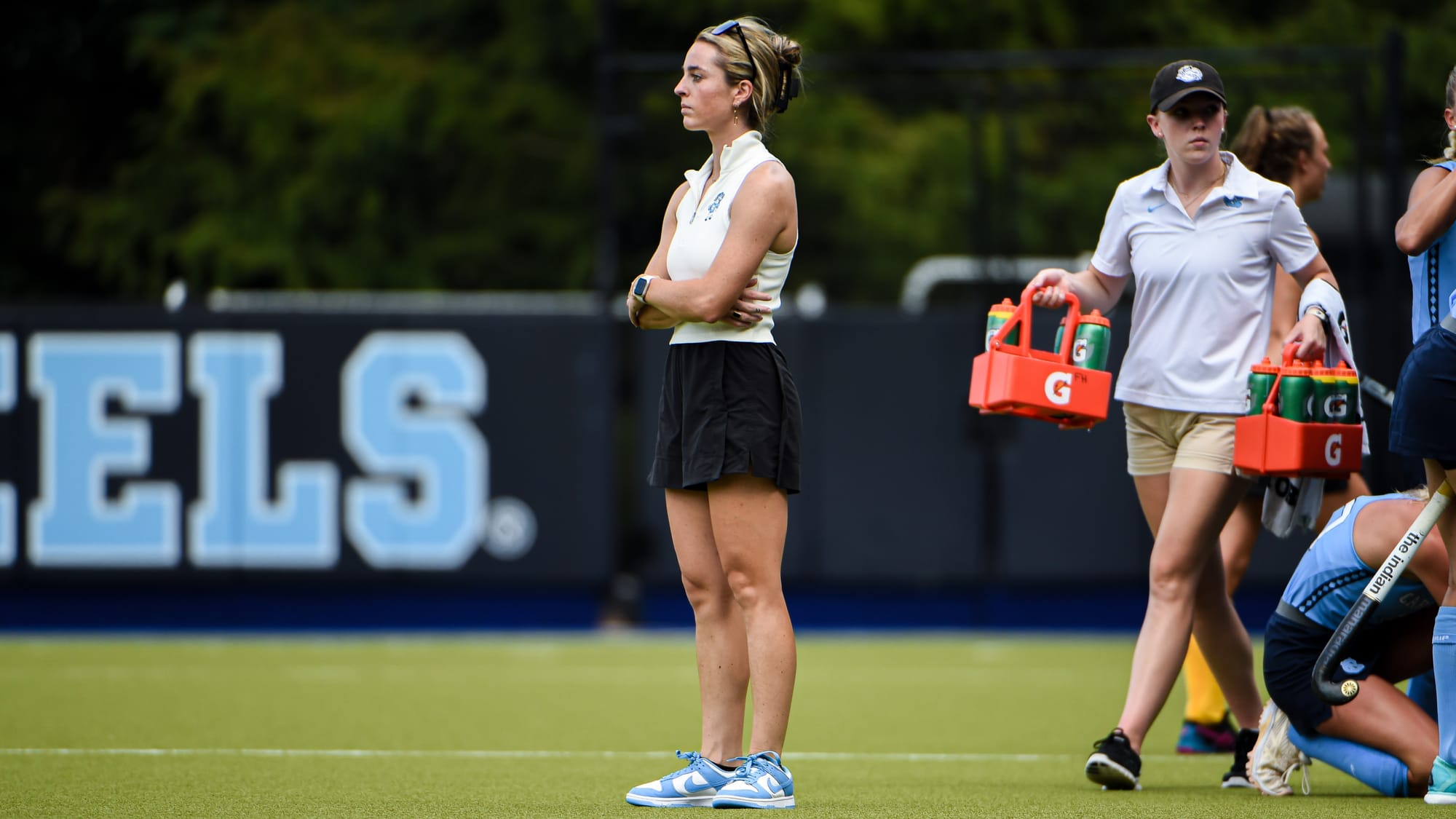
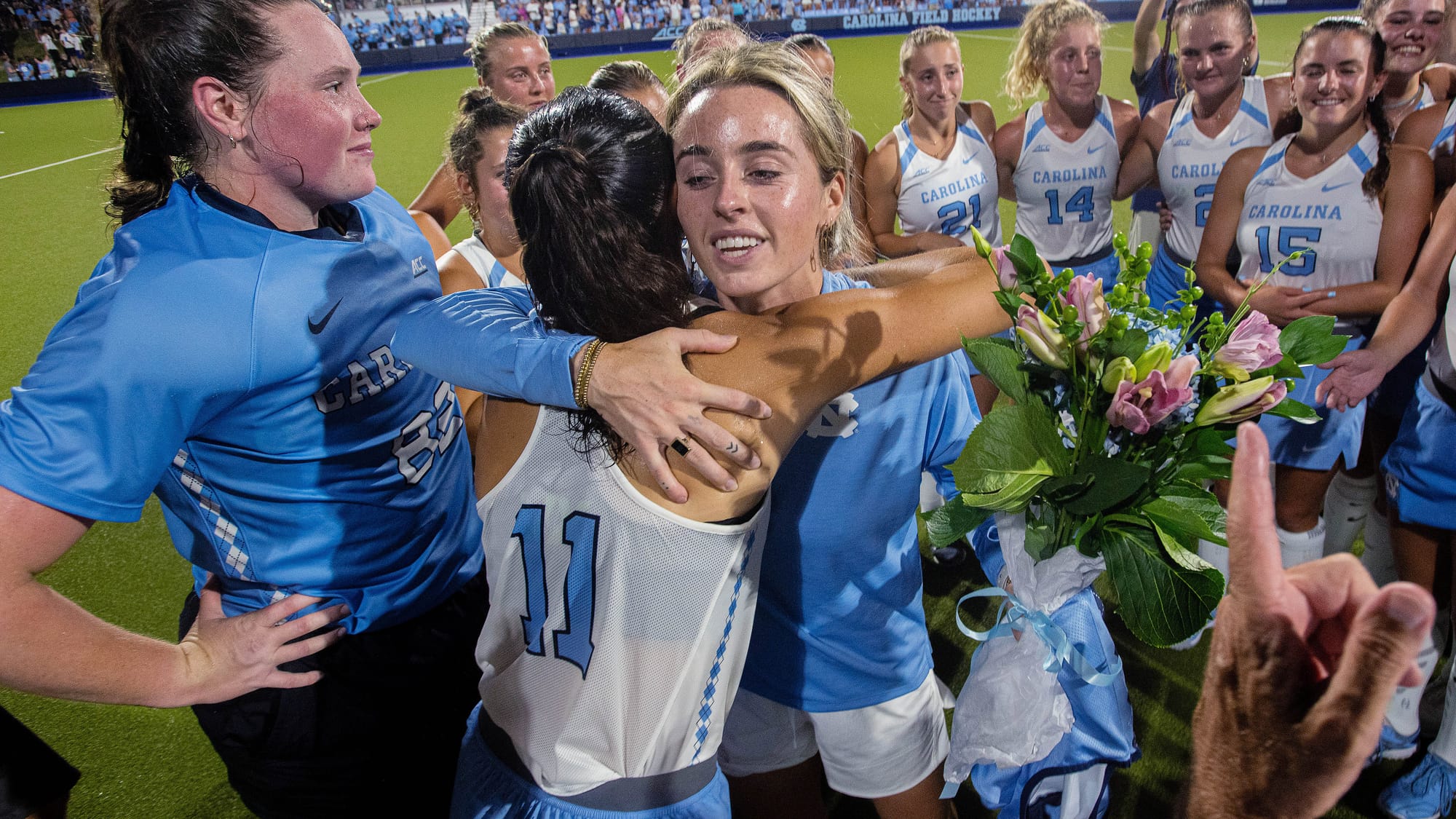
Matson was part of a winning stretch for the Tar Heels that saw them win 46 straight. [Courtesy photos]
“It was one of the most impressive, instinctual, creative goals I’ve ever seen, especially by a freshman,” Shelton says. “It really set the tone. For it to come in her first tournament and she arrives with a spectacular play that was unrehearsed — that was really good.”
Although Matson developed a reputation for wow! plays and creative ways to score, she showed another quality that impressed her coach: leadership. Even as a freshman, Matson wasn’t afraid to speak up in the huddle. She never shied away from sharing her thoughts or feared saying the wrong thing. “She was able to command respect from very early on,” Shelton says.
The Tar Heels had won three straight national championships in Matson’s first three seasons, including two seasons that saw the team go 46-0. Is there a better way to start your collegiate career?
By Matson’s senior year, rumors swirled that Shelton may retire at season’s end. Shelton had spent more than four decades with the team. Now, at 65, she grew tired and lacked the energy to take on another season. Who would — could! — possibly replace the coach who’s won 10 national championships, the most in NCAA field hockey history, and built the program into a powerhouse? Matson had an idea.
That August, before the season started, Matson, only 22, walked into Bubba Cunningham’s office, the athletic director, and made a bold proposition: She wanted to be considered as the next head coach.
“Look,” she told him. “I know I have a season to play. I’m not expecting you to hand me this job. I just don’t want to be overlooked. I want to earn this. I want to be on your radar when Coach announces her retirement.”
She caught Cunningham by surprise. It’s not every day that a college athlete with no head coaching experience at any level walks into your office asking for the top job at a storied Division I program. Then again, Erin Matson isn’t like most.
“Go win a national championship,” Cunningham told her, “and then we’ll talk.”
Pressure? Bring it on.
Matson and the Tar Heels did just that, going a perfect 23-0 and beating — who else? — Northwestern in the championship game. Then began a winter break unlike one she had ever faced. Shelton, as expected, announced her retirement. Matson graduated. She immediately began working on her job application — the first one she had ever filled out in her life. She met with the team to gauge their interest. Would they support her if she got the job? Yes, totally!
She went through multiple rounds of interviews with Cunningham, a hiring committee, and an executive team — all the while, they were all interviewing other worthy candidates for one of the most prestigious collegiate field hockey jobs in the country.
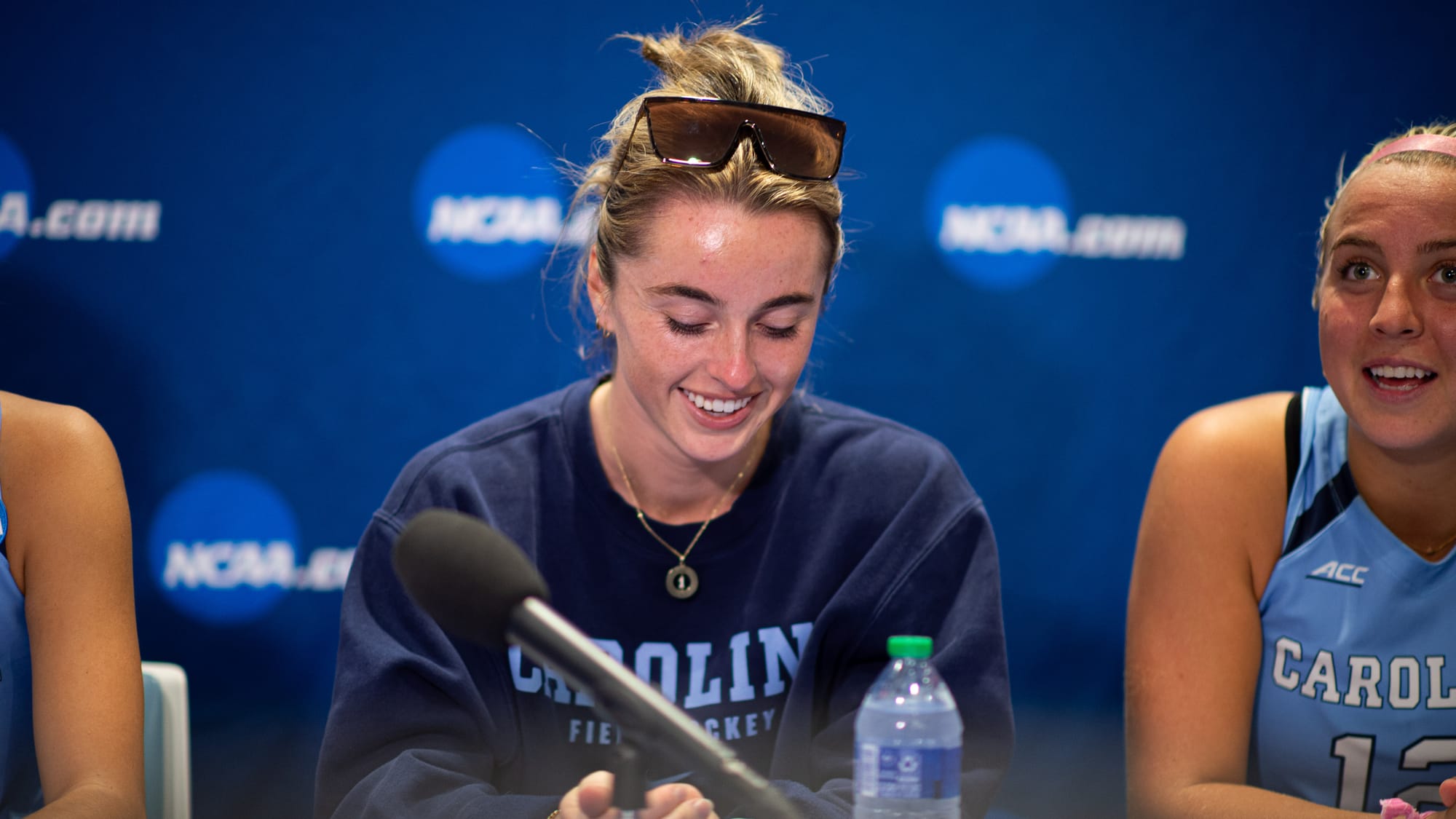
Matson made a compelling case, despite her youth. She knows the ins and outs of the program. She’s loyal to UNC and has said on countless occasions she couldn’t imagine coaching anywhere else — for reasons none other than she could never rah-rah-rah! about another program being the best. She says it just wouldn’t feel right. She’s one of the most accomplished student-athletes in school history, joining a Mt. Rushmore of athletes like Jordan, soccer’s Mia Hamm, and football’s Lawrence Taylor. In 2021, the ACC Network named Matson one of the 10 greatest female athletes in conference history, joining Hamm and soccer star Kristine Lilly.
But particularly enticing to Cunningham and the hiring committee was her ability to connect with athletes in an era of college sports where athletes can be paid for their name, image, and likeness — better known as NIL. While many other candidates could talk about how to capitalize with NIL, Matson had lived it firsthand in partnering with local businesses during her time in Chapel Hill.
At the end of January, Cunningham called Matson into his office. It had been five months since she first planted the seed, two months since the team won the national championship, and one month since she graduated and began the whole whirlwind process. And there she sat as the next head coach of the University of North Carolina field hockey.
This past year, Matson says, has been “beautiful chaos.” After accepting the job, she immediately got to work with the team. It’s not the field hockey she worried about, but the mountain of administrative tasks that she had to learn on the fly: budgeting, scheduling, scholarships, fundraising, recruiting. Shelton, thankfully, had left the program with a solid foundation.
There was also the slightly awkward fact that she was now coaching players just weeks ago she played beside, some of whom she had spent thousands of hours with during her five seasons. Matson leaned into her communications and media degree and preached transparency. She set boundaries that included getting a new cell phone for players to reach her. There was the talk about what do you call your friend-coach. They settled on whatever felt comfortable for the returners, but the newcomers would call her coach.

The response to her hiring was widely celebrated throughout Chapel Hill. Shelton says she hoped the job would go to a Tar Heel who understood the tradition she built. Matson, she says, “was perfect. The right person at the right time.”
There were, of course, keyboard critics who slammed the decision, arguing that such a hire would never happen in men’s sports, while claiming Matson’s hire is a sad day for women’s sports and she would never succeed.
What those critics fail to realize is that Shelton took over the UNC program in 1981 when she was 23. Beyond leading UNC to 10 national championships, Shelton’s teams claimed 25 ACC championships (a record); an overall 745-172-9 record, making her the winningest field hockey coach in NCAA history; and leading the Tar Heels to 14 Final Fours in the past 16 seasons. Shelton’s work is a testament to what can be done, age be damned.
Pressure? Matson loves it.
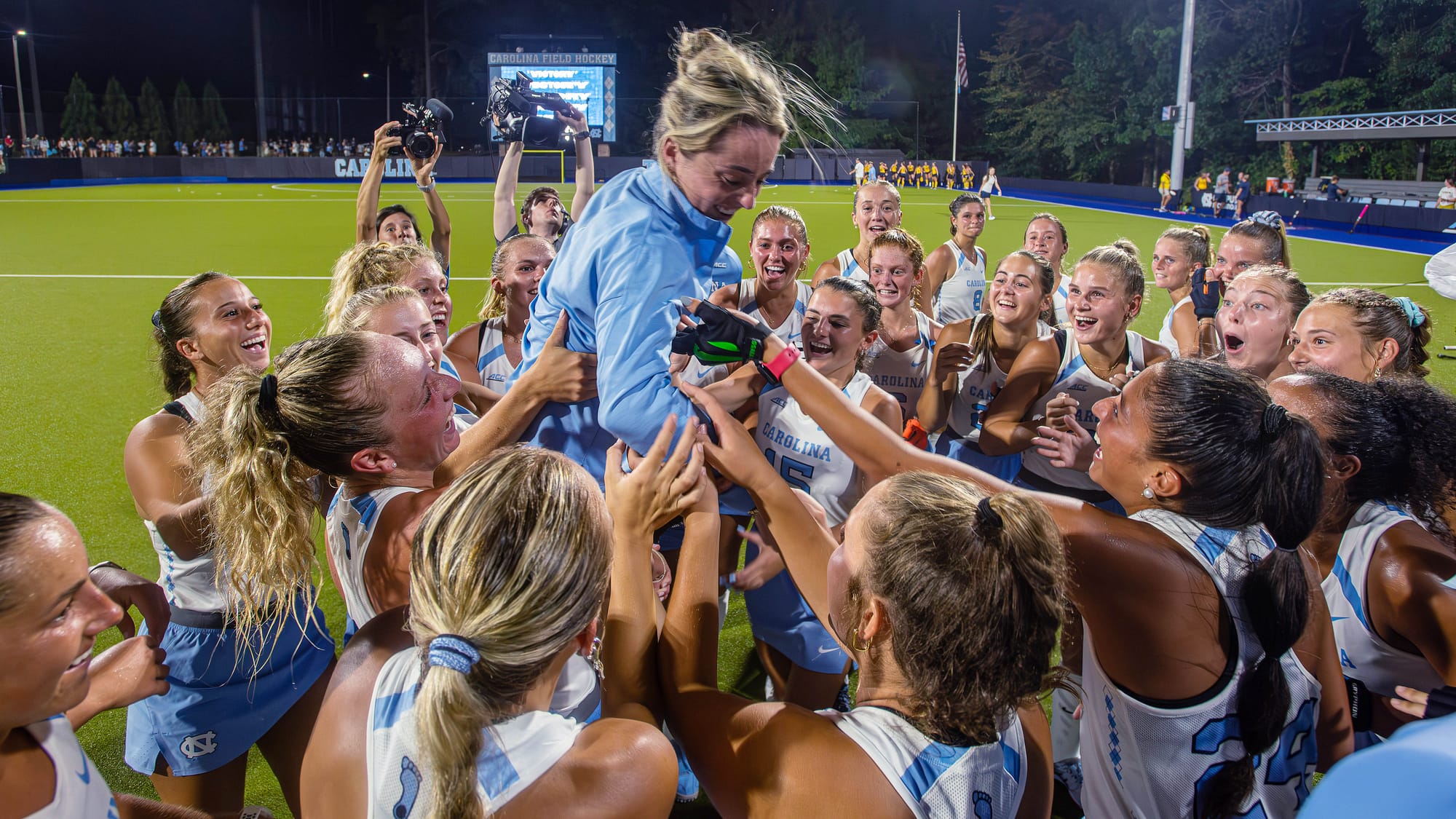
“Of course there is pressure, because of the prestige of our program and carrying on a legacy. I’d be lying if I said there wasn’t any pressure,” she says. “But at the same time, my mindset is this is a once-in-a-lifetime opportunity. And if I put my head down, if I work hard, if I prepare the right ways like I’ve always done, stay present, lean on the people around me and continue learning, the pressure will alleviate itself.”
All that pressure of taking the most coveted job in women’s field hockey? Matson embraced it and led the Tar Heels to a national championship this season, her fifth in six years, and making her the youngest Division 1 head coach to win a national title. Now, the pressure is on to do it again.
So, bring on a second season leading the most accomplished field hockey program in NCAA history. Bring on the challenges and the naysayers. Bring on another year as she cements herself as one of the all-time greats. Matson is ready for it all. Because how lucky is she to be leading a program at the pinnacle of its sport — a dynasty, much like the Chicago Bulls of the 1990s or the New England Patriots of the 2000s — where her job is to defend the tradition every day.
After all, pressure is privilege.
Advertising and sponsorship opportunities are available. Contact Jim Hoos at jhoos@r1s1sports.com or 602-525-1363.